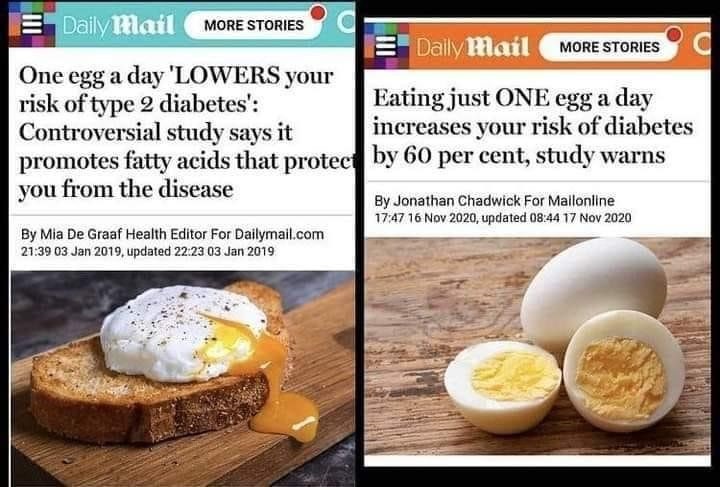Do you mean the movie, or the tweet? I suppose the answer is yes in either case, but in different ways.
The Tweet.
It seemed pretty mocking to me. I mean, it's comparing the gravity of feminism to the gravity of a slight temperature adjustment. I assumed that that trivializing was supposed to be the joke. If that was meant to be a feminist tweet, it's..... odd. lol But okay. People are odd.
Still, that's kind of beside the point, since you posted it in this thread for a reason, while saying your complaint has nothing to do with feminism. Unless you felt it related to the topic in some other way?
It came from Trudeau (liberal PM of Canada), it was meant to be earnest and positive. Though the delivery was rather awkward. Reason for posting it: Seemed like painful virtue signaling.
That's a strange thing to have contempt for. lol Artists toy with the reversal of concepts in media all the time.
The contempt comes more from how journalism has been pumping out material that falls in line with mainstream critical race theory, and the overall tendency of the tabloid format to contradict itself. Particularly in the last few years, somewhere around the end of Bush's term and the beginning of Trump's, the media started to become a prismatic source of sentiments that would evolve into cancel culture, more extreme levels of divisiveness, and levels of political correctness that has a pervasive reach as far as into stand-up comedy.
![Posted Image]()
![Posted Image]()
I could just as easily see the directors saying that sort of thing for, as you said yourself, virtue signaling. If you're going to be blatant about the political baiting, you may as well market it, right? They may have even believed they were doing something good. Granted, I haven't seen that show, so I don't know how sloppy or superficial the attempt at moral messaging was, but if it was as you say, then I doubt it's a subject the director and other major contributors truly cared about. Someone who's given real thought and care to a cause and aims to make changes through their art, can typically represent it better than creating a piece of media that has nothing to do with it and then awkwardly inserting some childishly superficial commentary on the subject. It betrays how little thought they actually gave it, how little it mattered to the story they were telling. Rather than it being a feminist or anti-racist piece of media, it's just a regular piece of media with a feminist or anti-racist logo slapped on it.
It is possible that the directors were baiting, but their words at least matched their output. It's easiest to illustrate with quotes:
Given the racial and gender politics of the show, I didn’t want this to just be a conversation between two white men. So I reached out to a group of women of various ethnic backgrounds who wrote a series of essays called “Women Watch the Watchmen” to ask them what they’d want to ask you. The first question comes from Chloe Maveal: “Do you feel like this show is something that can help redeem Watchmen to literally anyone who’s not part of a straight white male audience? Do you, as both a fan of the comics and showrunner of the TV series, feel like the comic books here need redeeming in the first place?”
Because I’m not Alan Moore, I get to make a Watchmen that’s like, “Here’s how I feel about female characters. Here’s how I feel about characters of color. Here’s how I feel about Rorschach.” I get to have those debates in the writers’ room. Those other writers get to say, “Well, here’s how I feel about it.” Of course, in the writers’ room, there was a wide range of whether or not Rorschach was a white supremacist. Rorschach, a.k.a. Walter Joseph Kovacs, is a costumed vigilante with a lethal streak and an unshakeable sense of right and wrong. Speaking of right: He’s profoundly socially conservative and an avid reader of a trashy right-wing magazine. In his diary, he writes about his distaste for queer people and other marginalized groups.. I said, “That’s not relevant. He’s dead. What’s interesting is that you can make a compelling argument that he was and I can make a compelling argument that he wasn’t.”
The show was generally well-received; I'm probably in a marginal opinion that it was used as social propaganda. The series starts off with a KKK assault on Black Wall Street from way back, and ends with the modern villains being a white supremacy sect. This was well-received for its progressive notions. I was left feeling like someone was trying to "educate" me.
There definitely are shows where there are slightly similar sentiments, but the execution doesn't muddy the plot, and the issues aren't just a logo slapped on it, like you said. The Boys comes to mind.
I'm not surprised this happened with Watchmen. But I'm not mad about it either. Almost any time there's a piece of successful and meaningful media, people who didn't fully understand the original will make bastardized versions. It doesn't make the original any less good. That's just purist thinking. The world is full of failed attempts to capture something better, and I say keep chugging on, the more attempts people make, the more likely we'll get another rare gem, and it doesn't even have to be anything like the original to be appreciated.
Though I am curious, in what way do you feel like the social agenda they pushed betrayed the original series? I imagine it would have to be more than casting women and non-white people. Did they do something with the story that really undermined the message of the original?
The original Watchmen dealt a lot with the themes of corruption, dysfunction, and pessimism. The most powerful characters were also the most dysfunctional. Rorschach was sociopathic and rigid in his morality from a harsh life. The Comedian was a rapist and murderer who thrived on chaos out of deep-seated pessimism. Dr. Manhattan could no longer identify with humanity. Ozymandias had little to no empathy, and was probably a narcissist. All meant to be heroes, all tremendously flawed in a world where the only way to get humans to cooperate is to either beat them down for a while, or threaten and fool them at a cost that doesn't sit easy for those who find out.
There are elements of corruption in the Watchmen show, but it's not about about the darkness of human nature. The focus there is social equality, brought into perspective by scenes of racist violence and protagonists who eschew racism. There is not much to be said for the darkness of man itself or its self-destructive nature. Nor are the protagonists flawed in the sense they were in the comics. These are straight-laced heroes with well-tuned moral compasses. Where the appeal of the comic and movie was ambiguity and shades of gray, the show is another iteration of good guys vs bad guys.
I didn't say it was palatable, all I said was that it doesn't remotely reflect on the value of the principles they're supposedly pushing. A bad movie is a bad movie.
I wasn't meaning to insinuate that you implied such a thing. That was basically just me giving some gripes that revolve around why I've made this a topic. The ethos of this kind of stuff is gross to me.
As for the Twitch thing, that's not public appeasement. That's a purely economic decision, and a good one, from a corporate perspective. Words like "simp" were shaming men out of following and donating to female streamers, particularly those using sex appeal. Sexualized female streamers and their fans are a significant demographic for Twitch. Taking money out of that demographic is taking money out of the pockets of the company. They protected their interests.
True.

